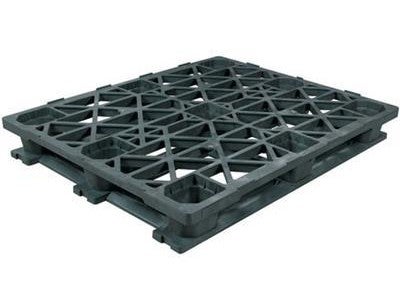
 There is a popular trend right now concerning different types of packaging pallets. The packaging world is being forced to choose between wood and plastic pallets.The controversy between the two is a chemical, Deca-bromine, used in plastic pallets. Deca-bromine is a chemical that contains very controversial fire retardants, and it is used in many plastic packaging pallets. Supporters of Deca-bromine claim that they are saving lives by reducing fire hazards in warehouses, however; it also receives much criticism from some consumer activists, scientists, and regulators.The chemical has already been banned from being put into pallets in Maine and Maryland. The FDA has voiced their concerns about the pallets treated with Deca in the hydro cooling process of fruits and vegetables. The produce is cooled right after it is harvested in order to stay fresh, but it could be compromised if the Deca leaks out of its pallet as some people claim. The other option would be wood pallets, however; wood pallets are much heavier, and the cost is higher.
There is a popular trend right now concerning different types of packaging pallets. The packaging world is being forced to choose between wood and plastic pallets.The controversy between the two is a chemical, Deca-bromine, used in plastic pallets. Deca-bromine is a chemical that contains very controversial fire retardants, and it is used in many plastic packaging pallets. Supporters of Deca-bromine claim that they are saving lives by reducing fire hazards in warehouses, however; it also receives much criticism from some consumer activists, scientists, and regulators.The chemical has already been banned from being put into pallets in Maine and Maryland. The FDA has voiced their concerns about the pallets treated with Deca in the hydro cooling process of fruits and vegetables. The produce is cooled right after it is harvested in order to stay fresh, but it could be compromised if the Deca leaks out of its pallet as some people claim. The other option would be wood pallets, however; wood pallets are much heavier, and the cost is higher.
Why be forced to choose from two mediocre options, when there is a safer and more environmentally friendly option? IPS Packaging offers the solution to this controversy with Honeycomb pallets. Honeycomb pallets are sanitary, lightweight and much safer. They cannot give you splinters, and do not have nails in them. They are natural, so they do not contain any harmful chemicals, such as Deca. Compared to both plastic and wood pallets, they are the most affordable pallet option. With the ability to custom-size your honeycomb pallet, this environmentally friendly option provides a cost-effective solution to packaging pallets. What trend will you choose?







